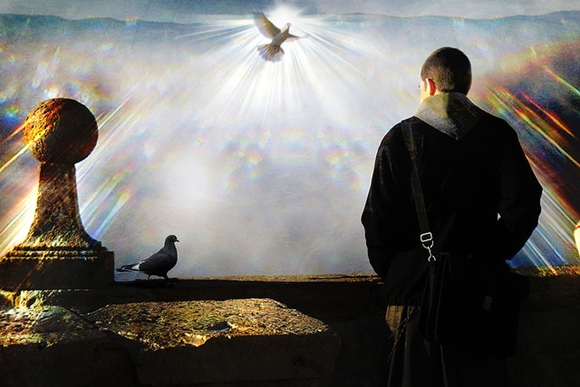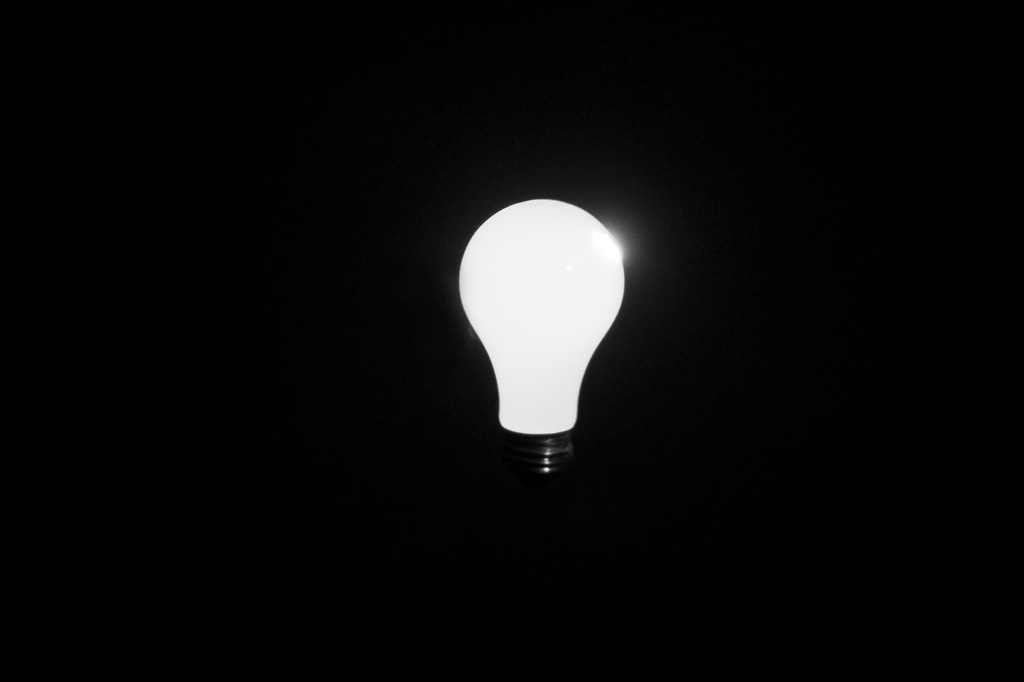God grant me the serenity to accept the things I cannot change; courage to change the things I can; and wisdom to know the difference.
Karl Paul Reinhold Niebuhr wrote what is usually called ‘the serenity prayer’ for a sermon in the 1930s, although it is sometimes mis-attributed to other writers. The prayer is now quoted widely, and you don’t have to be a Christian or, indeed, have any religious beliefs to see the timeless wisdom in this simple and profound statement.
Serenity to accept the things I cannot change
Some years ago, I attended a seminar given by an excellent motivational speaker. At one point, he handed out pens with the words ‘fact of life’ printed on the side. On stage, he had a large version of the pen, and repeatedly dropped it. The idea was that, like gravity acting on the pen, some things were just ‘facts of life.’ They cannot be changed and you have no power over them. To complain about these things or to seek to change them is, at best, a waste of time and, more often, corrosive and self-defeating.
When the courtiers of the eleventh century Danish king Cnut told their sovereign that he could turn back the tides by an act of his will, the wise king had his retinue carry a seat onto the beach. As he commanded the waves to recede, the court looked on and saw that Cnut could do nothing as the water lapped around his feet and got deeper.
This famous (and probably true) story is worth bearing in mind when things don’t go our way. Often, we are better to accept the limits of our power to change things.
Courage to change the things I can
While much cannot be changed, there are certainly things which can yield to our influence. Lasting change, however, is rarely brought about by direct action. Any sense of direct control we might have over the world around us is almost all illusion, and we would be better to think of effecting change in terms of influence.
First and foremost, change requires a positive mindset. The world we experience is, essentially, a kind of echo of our inner landscape. We make mental models which enable us to navigate through the world, and we interpret the outside world in terms of this framework. Keeping a positive mindset, then, tends to draw positive experiences towards us. From this place, we are able to act in ways which will bring about change, often in indirect and surprising ways.
Keeping a positive mindset can be difficult, especially if we are used to playing negative scripts in our head. We need to be courageous. Courage is not aggression, violence or force. It is seeing the world at its best, and it is proper action, executed in the right way and at the right time.
Lao Tzu, reputedly the founder of Taoism, wrote, ‘A leader is most effective when people barely know he exists. When his work is done, his aim fulfilled, his troops will feel they did it themselves.’ Action is best kept to a minimum and best kept in the background.
“By letting it go it all gets done. The world is won by those who let it go. But when you try and try, the world is beyond winning.” – Lao Tzu
Wisdom to know the difference
This can be the hardest thing of all. Sometimes, we rush in and act when we should not have done so. At other times, we hold back when, perhaps, we should have acted.
And yet perhaps it is not so difficult, after all. It seems to me that the key is being detached. When we observe in a detached way, we are more likely to make the right calls. Even when taking action, we should not be emotionally blinded by our own involvement. What matters most is the way you see the world. Anthony de Mello, a great modern mystic, called it ‘being awake.’ He wrote, ‘It’s not your actions, it’s your being that counts. Then you might swing into action. You might or might not. You can’t decide that until you’re awake.’
Being awake – being aware and unattached – can make a huge difference to the way we interact with the world. When we have the ability to know when to act, how to act, and to be sufficiently detached as we act, our influence can be enormous.
Photo by AlicePopkorn






Hi Mark,
I really enjoyed this post. I like what you wrote about detachment. Detachment is usually seen as something negative, but it is not. A healthy detachment frees us from what we have no control of. It releases us from the hurtful behavior of others. It allows us to say no to the negativity in the world. It allows us more energy to put toward positivity. Thanks so much for this post Mark!
~Dandy
@Dandy – absolutely. One thing I always remember from Anthony de Mello’s writing is a quotation from the Bhagavad Gita: ‘Plunge into the heat of battle and keep your heart at the lotus feet of the Lord.’
Hi Mark,
Interesting article, especially the second and third sections. However, I don’t think detachment was the best way to tie up the article. I am very familiar with DeMello’s teachings, and thought for quite a while that his teachings on non-attachment were the best path for me. Unfortunately, from what I found, DeMello never really explained how to get things done while staying in a non-attached mode (kind of important in engineering college). This could be thought of in terms of the three roads in buddhist teaching, but getting from the detached (bottom?) road to the middle non-attached is rather tough….
Where I thought you were going with this article was a lot closer to Maxwell Maltz’s teaching, as outlined in Psycho Cybernetics (1960). What you say in your third paragraph (conscious effort = bad & positive outlook = a part of the solution) is a part of some of what is in his book. What Maltz does however is outline a roadmap and the tools you need to get to where you want to go (e.g. subconscious effort which you can guide but not control, therefore in a sense letting go).
Have a good day, best,
Fearghal
Hi Mark,
I was disappointed that you didn’t reply about the point I raised. I once heard an interview with Matt Mullenweg, where he said that people who post comments on blog posts are idiots – they are giving away their value for free….
I have the same rule, but I broke it for this once and made an exception, thinking you would return the favor. I guess not, and I won’t be posting comments again on any blog. Don’t worry, I know you’re probably busy, so nothing personal. Thanks for the lesson though.
Best,
Fearghal
why so much “attachment” for a response…be “detached” of the outcome and speak what you see as truth.
@Fearghal – I’d never heard of Psycho Cybernetics. I’ll check it out. Thanks.
A story about letting go …
In Africa the natives use a simple and ingenious trap to capture monkeys. They hollow out one end of a coconut and tie a long line to it, then put peanuts inside the coconut and hide it in the bush. When a monkey discovers the coconut filled with nuts, he works his hand through the small hole in one end of coconut to grab a fist full of nuts, but finds when he makes a fist he is unable to pull his hand out through the hole. The monkey is persistent but he is confounded by the coconut and is unable to retrieve the item of his desire. Once the monkey has his hand inside the coconut the natives slowly pull in the line attached to the coconut. No matter how loud the monkey squeals, cries, and complains; pulls, tugs, and fights, he remains trapped as long as his fist is clenched. The only way the monkey can save himself is to let go!
http://www.contrarianism.net
I like this – I think it’s important to realize and accept what you can and cannot change. Too many people waste their precious energy on things they can’t change and making themselves miserable. Accept it and move on to things you can control!
very good post peter, i believe we should try to change what can be changed and accept what we cant change
Mark, great observations on the serenity prayer.
I like your quote, “We make mental models which enable us to navigate through the world, and we interpret the outside world in terms of this framework.”
I think that’s so true. Sometimes this framework is self-defeating…..that’s what I’ve been pondering quite a bit lately.
Great article! Coming over to Effortless Abundance right now.
Serenity is accepting that some things are out of control, which is hard, and why I think we’ve seen the rise of things like The Secret and the LoA.
I don’t think anything is ‘out of control.’ But I don’t think ‘control’ is what we think it is.
Hi Mark,
I love that you quote Anthony deMello! I love his work and consider him to be my spiritual mentor. Years ago I watched and purchased his video program “Awake; Spirituality for today.” (I believe it’s available online now) and can practically quote it verbatim to this day.
Some people find the first part of the Serenity prayer easier to swallow and some the second part. I’m a die-hard “changer” so I was surprised the first time I realized anyone found serenity easy or change hard to do!
Thanks for a great article. Nice to have found your blog!
Lori
@Lori – Anthony de Mello has been with me for so many years now … ‘Awareness’ is my #1 desert island book.
Mark,
Have you seen his presentation on awareness? It’s on Youtube, here:
http://www.youtube.com/watch?v=4Y3Q7H2urto
He’s amazing as a presenter! Seems he knew his message so well that he was prepared for it even though he didn’t seem to have prepared for it! Notice how his handling of the questions at the end of each part adds to the presentation.
Enjoy!
Lori
Outstanding! Thanks so much for this link.
Thanks for the reminder about the Serenity Prayer. I needed to work on, “Serenity to accept the things I cannot change.” I can’t change or force people to look at themselves in the mirror and take responsibility for their lives. I had to remind myself that some of us are not ready to ‘wake up’ or won’t ‘wake up’ at all. I now bless people and send them on their way. I won’t get caught up in their drama-rama either. Lesson learned.